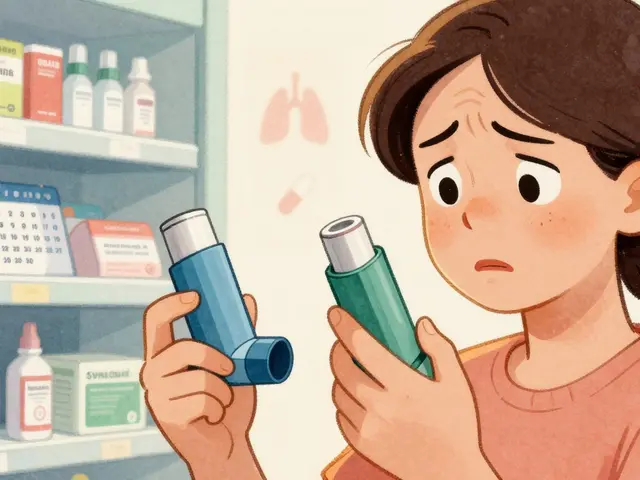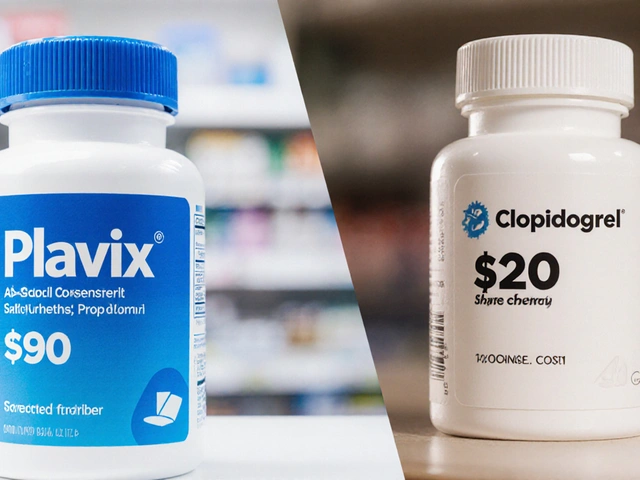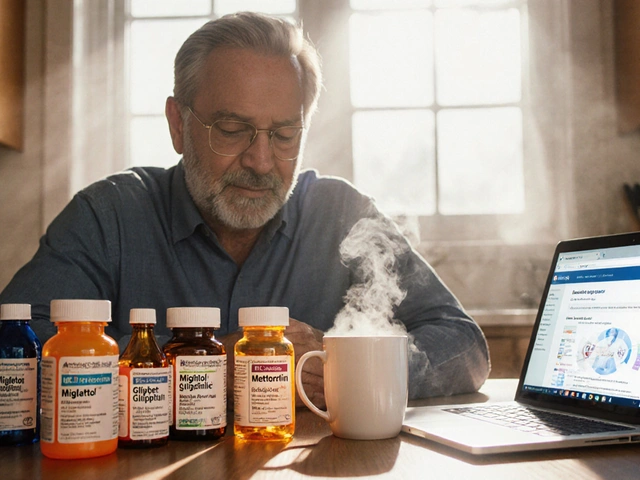Emphysema Treatment – Practical Tips to Help You Breathe Better
If you or someone you know has been diagnosed with emphysema, the first thing to remember is that treatment isn’t one‑size‑fits‑all. It’s a mix of medicines, inhalers, daily habits, and small changes that add up. Below are easy‑to‑follow steps that actually work for most people living with this condition.
Medication Options That Make a Difference
Doctors usually start with bronchodilators – those quick‑acting inhalers that open up the airways in minutes. Short‑acting beta agonists (SABA) like albuterol are perfect for sudden shortness of breath, while long‑acting bronchodilators keep your lungs more relaxed throughout the day.
For many patients, adding an inhaled corticosteroid (ICS) helps reduce inflammation and flare‑ups. If you’ve had frequent attacks despite a single inhaler, combination inhalers that blend a LABA (long‑acting beta agonist) with an ICS can be a game changer.
Sometimes doctors prescribe phosphodiesterase‑4 inhibitors such as roflumilast to cut down on chronic inflammation. It’s taken as a pill once daily and works well for people who keep getting exacerbations even with inhalers.
Lifestyle Changes & Breathing Techniques
Medication alone won’t fix everything. Quitting smoking is the single most powerful step you can take – it slows lung damage and improves how your meds work. Even if you’ve smoked for years, stopping now still brings real benefits.
Exercise might sound scary when you’re short of breath, but a gentle walking program or pulmonary rehab class builds stamina without overexertion. Start with five minutes a day and add a minute each week; your lungs will thank you.
Breathing exercises like pursed‑lip breathing and diaphragmatic breathing are simple tricks that help keep airways open longer. Try inhaling through the nose for two counts, then exhale slowly through pursed lips for four counts – repeat a few times whenever you feel tight.
Staying hydrated also helps thin mucus, making it easier to clear. Aim for at least eight glasses of water daily unless your doctor says otherwise.
Finally, keep an eye on vaccinations. Flu shots and the pneumonia vaccine lower the chance of infections that can trigger severe attacks.
Putting all these pieces together – the right inhalers, a quit‑smoking plan, light exercise, breathing drills, and regular check‑ups – gives you the best shot at living comfortably with emphysema. Talk to your doctor about which meds fit your situation, and don’t hesitate to ask for a referral to pulmonary rehab if it’s not already part of your care.
Remember, managing emphysema is a daily effort, but every small step adds up. Keep track of what works, stay in touch with your healthcare team, and give yourself credit for the progress you make.











